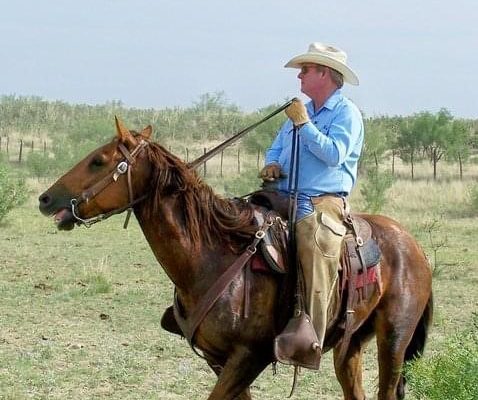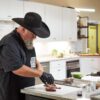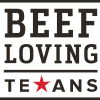Bill Wight – Odessa, Texas
Bill Wight – Odessa, Texas
Bill Wight of Odessa, Texas officially hung out his own shingle as a cattleman back in 1977, fresh out of Rice University with a management degree. Although Rice didn’t offer an agriculture experience, the ranching lifestyle was old hat to Bill, running deep in his blood. Four generations earlier, in the 1880s, his great-grandfather drove a herd of sheep south from Colorado because he heard T&P Railway was completing the route from Fort Worth to El Paso. He found it at Odessa and settled nearby, leasing land under the Homestead Act and started a ranch that has now become the family way of life.
“As a child, my grandparents lived just a few miles away,” says Bill. “Whenever I could, I would ride my horse to their house to ‘help Papa with his ranch chores.’ We fed cows and quail, trapped varmints, mended whatever was broken, and grew a garden. We also played dominoes, ate ice cream, and went swimming. The first time I went to their house after I finished college, Papa took me to his office and showed me how he did the books for himself and for the ranch partnership. I think he was ready to retire.”
Bill’s father also mentored Bill in the business, providing invaluable advice and counsel along the way. “I went out with Dad, long before I can even remember, to work cattle, fix windmills, mend fences, build things, and just check on things. As I got older, he helped me start and train several horses. Early in my ranching business, my father helped me work my ranch leases, especially the tasks that involved horseback riding. We were able to work together until he had to stop riding a few years ago. Today, Dad is 91 and still lives on the ranch, always glad to give advice and quick to notice anything amiss around his house.”
While Bill learned about “chemistry, biology, economics, and accounting” in college, the bulk of his agricultural education has been from extensive hands-on training from his dad and grandfather. But he also credits old-fashioned “trial and error” along with information gleaned from agricultural media, various extension service programs, and the Beef Cattle Short Course at Texas A&M University.
“When I first started working out of college, I made a deal that summer to pasture some steers on a family friend’s place north of Las Vegas, NM,” explains Bill. “Later that year, I was able to lease a ranch near Kermit, TX but had to pasture other people’s cattle on most of it because I didn’t have enough money to stock it. Today, I am in a family partnership that operates the land my great-granddad, grandad, dad, and uncle put together over a 100-year period. I also lease several ranches that are scattered over six or seven counties and have a ranch that I bought. I operate these on my own. I have some yearlings pastured in New Mexico and some in north Texas.”
Bill, a widower since 2013, says one of his biggest joys has been raising kids on a ranch with his wife. “I was able to take my kids to work with me and watch them learn and grow. I was able to teach them what I thought and show them why I thought it. Quality time is good, but a large quantity of time together and of shared experiences makes it even better. I don’t think there is any industry that allows more family involvement.”
“I have two children and four grandchildren. My son Jason and his wife Amanda live on the ranch with their two children, Bailey and Colton. Jason works for me and has taken over most of the day-to-day operation. I tell everyone that he gets to do the fun stuff and I’m stuck with the bookwork. My daughter Jessica and her husband Tyler live near Lamesa with their two children, Braydon and Rebecca, where he works for a ranch and she is the school district librarian.”
Read on to learn a little more about Bill and ranching life in his own words:
Ranch Life Challenges: My grandad once said that he was sore for most of his life. Every time his body got used to doing one thing, he finished that task and started doing something else that strained a different set of muscles. I’m not sure if this is the hardest or the most interesting part of ranch life. There are many dissimilar jobs and skills involved in ranching. It requires understanding animals, doing some accounting, keeping up with and responding to political trends, knowing how to build and fix windmills and fences, reading and editing legal contracts, managing employees, marketing, and many other things. Sometimes all of this happens in one day.
Ranching Community: Being able to work with other ranchers is a great aspect of being in this business. We “neighbor” with nearby ranches, meaning that we help each other work cattle. This gave me and my kids the opportunity to know, work with, and learn from some unique and outstanding people. I’ve known and worked with men who worked with my dad and grandad. My kids and grandkids know and work with people who know and have worked with my dad and with me. This helps pass down a sense of community and stewardship.
Job Perk: Having a “job” that involves riding a horse several hours a day for several weeks of the year is also a great aspect of ranching. I’ve gathered cattle in mountains, the desert, sandhills, wheat fields, and many mesquite-covered pastures. Working with a horse to convince cattle to do what I need them to do is both fun and rewarding. Training a horse to do what he needs to do to make us successful and then enjoying him when he does things right is a thrill.
Favorite Cut: Ribeye steak cooked medium rare over a mesquite fire.
Interesting Fact: It takes 60 to 80 acres to support one cow in this part of west Texas, so ranches are big out here.
Travel: Over the past few years, I’ve been traveling more and working less. I went to Japan and Taiwan with the U.S. Meat Export Federation in 2016. Since then, I’ve also been on a photo safari in Africa, a cruise to Antarctica, and to Italy. I’m looking forward to getting out to travel again.






